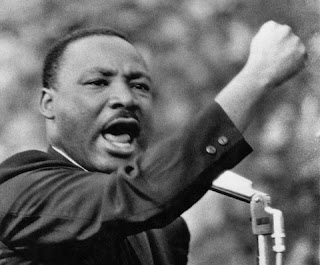Literature on struggle against racism: A review of the autobiography of Martin Luther King Jr
By Osa Amadi
Today, June 8, is significant in the political history of Nigeria. It is the death date of Nigeria’s worst military dictator, Gen. Sani Abacha.
The times also coincide with an ongoing resurgence of protests and riots against racism in the USA. As we compute it in Nigeria, June 4 (the day Kudirat Abiola was assassinated on Abacha’s instruction for fighting to reclaim her husband’s presidential mandate) + June 8 (the death date of Kudirat’s assassin) = June 12 (the date the freest and fairest election in Nigeria was conducted and won by MKO Abiola, but was annulled by the then military dictator, General Ibrahim Babangida in connivance with the Nigerian military.
As this next segment of the history of black man’s struggle for freedom and justice unfolds before our eyes, your ever-proactive Vanguard’s Arts & Reviews takes you through the important milestones, as well as updates, of this struggle. Enjoy every bit of it:
First and foremost, Martin Luther King Jr (January 15, 1929-April 4, 1968) was a preacher of God’s word. Preaching the word of God runs in his family.
His father, grandfather, great-grandfather, his only brother, and his father’s brother were all preachers. But Martin Luther King Jr is a preacher with a difference. On page 18 of his autobiography, he writes:
“It has been my conviction ever since reading Rauschenbusch that any religion that professes concern for the souls of men and is not equally concerned about the slums that damn them, the economic conditions that strangle them, and the social conditions that cripple them is a spiritually moribund religion only waiting for the day to be buried. It well has been said: “A religion that ends with the individual ends.”
Throughout the history of blacks’ struggle against segregation, racism, and injustice in the USA, there has been, as it were in the struggle of the Jews against German Nazism, the dilemma of whether to toe the path of violence or non-violence.
This issue also preoccupied the movement which Martin Luther Jr led in the 1960s in the USA.
Suffice it to say he chose the part of peaceful protests against violence, even though to the disappointment of many youths who were involved in the many protest marches organized and led in those days by Luther Jr.
Moreover, he made it clear right from the beginning, that the fight was not against white people per se, recognizing that many white people are unhappy with racism and the injustice against black people.
On page 139, he marshalled out the ultimate aim of the protest when discussed his address to students during the youth march for integrated schools on April 18, 1959, in Washington D.C:
“I urged the students,” Martin Luther writes, “to continue the struggle on the highest level of dignity.
They had rightly chosen to follow the path of nonviolence. Our ultimate aim was not to defeat or humiliate the white man but to win his friendship and understanding.
We had a moral obligation to remind him that segregation is wrong. We protested with the ultimate aim of being reconciled with our white brothers.”
Though peaceful, it was a stubborn nonviolent engagement modelled after and inspired by Mahatma Gandhi’s in India.
When Luther and other protestors were arrested by the violent police and were considering granting them bail, they chose jail to bail.
Luther King Jr was arrested alongside other 280 students in October 1960 for participating in a nonviolent march to integrate launch counters in Atlanta, Georgia.
Luther did not organize the protest. He was invited by the organizers to be part of it, and “I felt a moral obligation to be in it with them,” he says.
Source
https://www.vanguardngr.com/2020/06/literature-on-struggle-against-racism-a-review-of-the-autobiography-of-martin-luther-king-jr/


Comments
Post a Comment